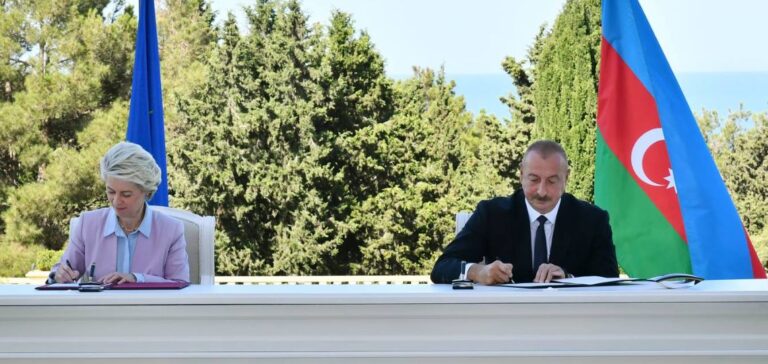European Commissioner for Energy and Housing, Dan Jørgensen, is in Baku to attend ministerial meetings dedicated to the Southern Gas Corridor (SGC) and renewable energy initiatives in the Caspian Sea. The visit is part of the European Union’s energy supply diversification strategy, aimed at reducing reliance on Russian gas.
The European representative will speak during the 11th Ministerial Meeting of the Southern Gas Corridor Advisory Council, a platform uniting partner governments, international institutions, and companies involved in the SGC’s expansion. This pipeline, linking the Caspian Sea to Europe via Türkiye, serves as a major alternative supply route for several EU member states.
Towards an expanded gas corridor
Discussions in Baku will focus on increasing the transit capacity of the Southern Gas Corridor, in response to the growing demands of the European market. Expansion plans involve coordinated cross-border investments between Azerbaijani and European infrastructure. The joint presence of political leaders and industrial stakeholders aims to confirm the next technical and regulatory steps for the project.
Alongside the gas-related agenda, renewable energy cooperation features prominently at the 3rd Ministerial Meeting of the Green Energy Advisory Council. The stated goal is to support regional initiatives in offshore wind development, energy efficiency, and methane emissions reduction.
Multilateral agreements on the green corridor
A working session is scheduled between the energy ministers of Azerbaijan, Georgia, Romania, Hungary and Bulgaria to review progress on the implementation of the green corridor. This transnational electricity interconnection project is intended to transport green electricity from the Caspian region to Central Europe.
Finally, Dan Jørgensen will co-chair a business roundtable with Azerbaijani Minister of Energy Parviz Shahbazov, gathering European and Azerbaijani companies to discuss offshore wind potential in the Caspian Sea. These exchanges aim to define a bilateral investment framework for offshore projects.
Before arriving in Baku, the European Commissioner made a stop in Ankara to meet with Türkiye’s Minister of Energy and Natural Resources, Alparslan Bayraktar, to reinforce strategic alignment between the European Union and Türkiye in regional energy transit.






















